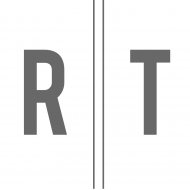
Seven years ago, 3 teenage boys took a joyride in a small aluminum boat they’d stolen from an uncle. The boys lived on the Tokelau Islands, a small remote pacific atoll governed by New Zealand. The boys were familiar with the ocean and its dangers, but that familiarity couldn’t restrain their youthful desire for adventure.
In the middle of the night, they pushed off into the open sea, hoping to reach a neighboring island within a few days. Instead, they drifted like a speck in the Pacific Ocean. Before they were rescued, they spent more than fifty days bobbing in salt water with barely any food or water.
One day, malnourished and sick from the sun, the boys watched as a gray gull landed on their boat. Quickly grabbing the bird, they twisted its neck, and plucked its feathers. They pulled off its skin with their teeth before devouring the meat, organs, and the contents of the bird’s stomach. They then crushed and ate the bones, and with growling stomachs wished for more.
****
The eleventh chapter of Leviticus names twenty different birds that should be regarded as unclean, inedible. “The gull” is among them. Distinctions between clean and unclean are applied to the animals of the land and the sea, and of insects. Some can be eaten; others must be avoided.
You must distinguish between the unclean and the clean, between living creatures that may be eaten and those that may not be eaten.
In the Gospels, Jesus dismisses these dietary restrictions. It’s not what goes into your mouth that defiles you, he says, but what comes out of your mouth. Whatever is put in the mouth will eventually be expelled. “But the things that come out of a person’s mouth come from the heart, and these defile them.”
The apostle Peter, having grown up with the dietary restrictions of Leviticus, internalized their logic of disgust. Lizards and catfish represented contamination. Camels and rabbits, through long habituation, were repellent to him. And so it took a vision from heaven to expand his diet.
He saw heaven opened and something like a large sheet being let down to earth by its four corners. It contained all kinds of four-footed animals, as well as reptiles and birds. Then a voice told him, “Get up, Peter. Kill and eat.”
“Surely not, Lord!” Peter replied. “I have never eaten anything impure or unclean.”
The voice spoke to him a second time, “Do not call anything impure that God has made clean.”
****
There is a way of relating to food that is only nominally about health. Its chief concern is the aesthetics of purity. It fetishizes the natural, a concept which its adherents can identify intuitively, but cannot quite define. Kale is natural, as are flax seeds. Wheat and corn are not.
Gwyneth Paltrow, who has published multiple cookbooks, is a priestess of the religion of Clean Eating. She offers spiritual guidance to her followers, covered in a diaphanous layer of pseudoscience.
The bottom line is, our bodies have a hard time with anything processed. That doesn’t only mean kool-aid and goldfish. White flour, white rice and soy milk are all heavily processed as well.
Or again,
We’re human beings and the sun is the sun—how can it be bad for you? I don’t think anything that’s natural can be bad for you.
Clean Eating is driven by a religious impulse to avoid contamination. But, unlike the Levitical proscriptions, the source of defilement here is modernity. It isn’t the pig that’s to be avoided, but the pig’s antibiotics and growth hormones. It’s his sunless stall and the industrial methods of his processing facility that cause impurity.
Clean Eating’s adherents must strive to avoid that which is artificial or manufactured. Through rituals like juice fasts and cleanses, they can atone for the toxins they’ve ingested. In so doing they strive to recover a kind of Edenic innocence. As a recent article explained, “It seems that the further we go with fancy and intricate treatments, the more we’re engaging in a ritual effort to make ourselves pure again.”
But the path of Clean Eating is asymptotal. It desires a state of purity that is always just out of reach. More antioxidants are always needed, more potent probiotics, or a more exotic source of hydration.
Those boys from Tokelau, starving almost to death, confronted an unsavory truth. Our day to day existence depends on sacrifice. The only way to stave off our own death is by killing and ingesting plants and animals. It’s a process that weds us to the world and frustrates our attempts at a diet-based transcendence.
